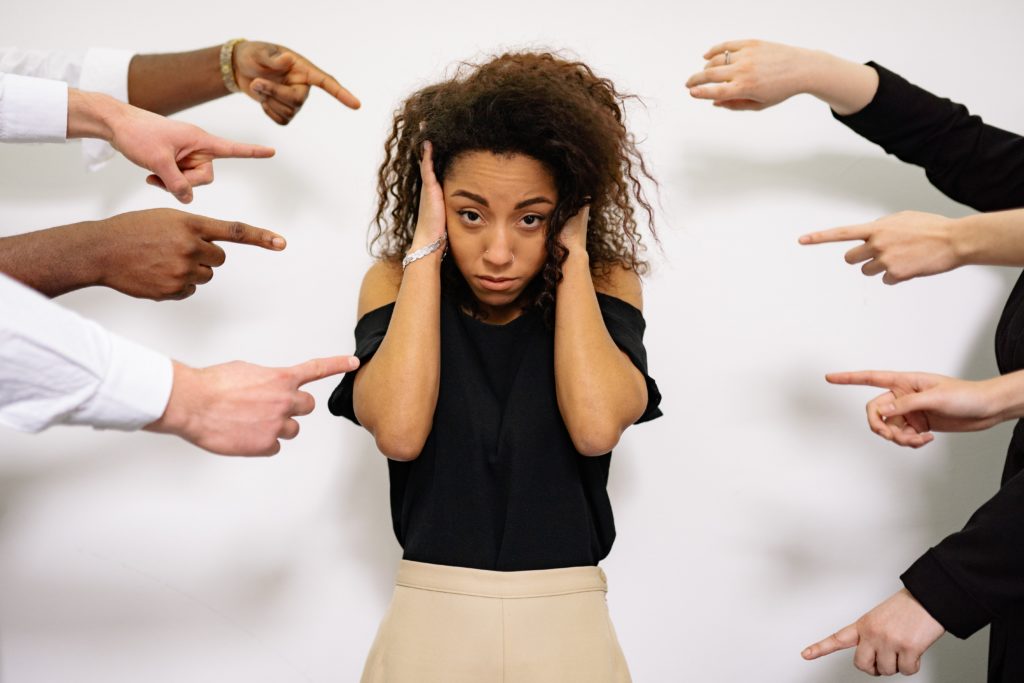Do you have trouble turning off the small voice in your brain while you’re at a party? Do you ever wonder if the person you’re speaking with thinks you’re boring? Do you wish you could go through just one social engagement without second-guessing yourself, becoming uptight, and obsessing over every “mistake”? You’ll learn what causes overthinking, how to have more pleasurable social encounters, and how to stop overthinking social interactions.

Table of Contents
Why do we overthink?
[define overthinking]. If you overthink social interactions you might also be overthinking in relationships, or at night. Therefore it’s necessary to first notice the symptoms of overthinking & what effects it has on your daily life.
Determine your fundamental reasons
Worrying excessively about your social abilities and what others think of you is a frequent symptom of social anxiety disorder. Shyness on the other hand is not a disorder. Shy people, like those suffering from SAD, are concerned about being assessed in social situations, which can lead to self-consciousness and social overthinking. Almost half of the population describes themselves as shy.
Introverts are prone to overthinking in general, and this applies to social relationships. If you are concerned that others may dislike you and wish to gain their favor, you may continually scrutinize your actions in order to make a good impression. This can be tiresome and lead to excessive overthinking. If you’ve been bullied in the past, fear of rejection may be a major issue for you.

Recognize that the majority of people aren’t even paying attention
We have a tendency to believe that everyone around us is aware of what we say and do. This is known as the Spotlight Effect. It’s an illusion since most individuals are far more concerned with themselves than with others. People will quickly forget your humiliating events.
Consider the last time a buddy of yours made a social faux pas. You probably don’t recall it unless it happened lately or had major repercussions. Remembering this might make you less worried about making mistakes.
Attend improv courses
Improv lessons require you to engage with others on the spur of the moment and To stop overthinking Social Interactions. You don’t have time to second-guess what you’re doing or saying. When you incorporate this practise into your daily life, your social interactions will feel more natural. Look for lessons at your community college or a theatrical club in your area.
I took improv courses for nearly a year and they were quite beneficial to me.
You’ll certainly feel stupid at first, but you won’t have time to focus on your anxiety. A scenario or exercise may go awry at times, but this is all part of the process. You’ll realize that it’s okay to appear ridiculous in front of other people.
Examine your preconceptions
Overgeneralization is an example of a cognitive distortion, also known as a thinking error, as defined by psychologists. When you overgeneralize, you focus on a single error and conclude that it reveals something important about yourself. For example, if no one laughs at a joke you tell and you conclude, “No one ever laughs at my jokes, therefore I’m never humorous,” you are making an overgeneralization. When you stop overgeneralizing, you’ll probably spend less time worrying about your errors since you’ll realize they don’t reflect on you as a person. This way you can stop overthinking Social Interactions

Know your own self worth
If your main aim in every social scenario is to get other people to like you, you’ll likely feel self-conscious and overthink everything you do and say. It’s frequently simpler to relax and be real among people if you’ve learned to validate yourself. Because you don’t need anybody else’s approval, you’ll be less terrified of rejection.
Don’t take other people’s actions too seriously
When someone is nasty to you or behaves strangely, don’t think you’ve done something wrong unless they tell you differently. Overthinking might result from taking things personally.
If your boss is generally conversational and cordial but merely says “Hi” one morning before hurrying out, you might wonder:
“Oh my, I’m sure I did something to irritate her/him!”
“I’m not sure why she/he doesn’t like me anymore.” “This is a disaster!”
Consider at least two different explanations for the other person’s conduct in this case. Continuing with the previous example:
“Because our department is so busy right now, my manager may be under a lot of stress.”
“My boss’s focus isn’t on their job today since they’re experiencing major troubles outside of work.”
You’ll quit overanalyzing every unpleasant social contact with practice.
Recognize that examining someone’s body language can’t tell you what they’re thinking
According to research, we tend to overestimate our abilities to read body language. It’s not a wise use of your brain energy to try to figure out what someone is secretly thinking and feeling.
Avoid making snap decisions based on gut instinct, posture, facial expression, or gestures. Instead, as you get to know them more, pay attention to what they say, what they do, and how they treat others. Give someone the benefit of the doubt until they have proven themselves to be untrustworthy or nasty.
Consistently practice mindfulness meditation
Mindfulness meditation (MM) is a technique for staying in the present moment and distancing yourself from unpleasant thoughts and judgments. Overthinking and rumination are reduced in patients with anxiety disorders, according to research.
Mindfulness activities can also help you become less self-critical and more compassionate with yourself. This is beneficial for those with social anxiety disorder who are prone to berating themselves for little errors.
Meditation has numerous benefits and advantages. If you’re looking to start meditating or build your practice and you want to get started on your journey of guided meditation or meditation at home, we can help.
Evolve has over 50+ guided meditation audios designed to make it light, refreshing and easy to learn. The Evolve app is now live globally on Android & Apple, click here to try for free!
Co-founder and brains at LeapX by C32 Media Labs
Mail at sarah@c32.media to connect with her.
